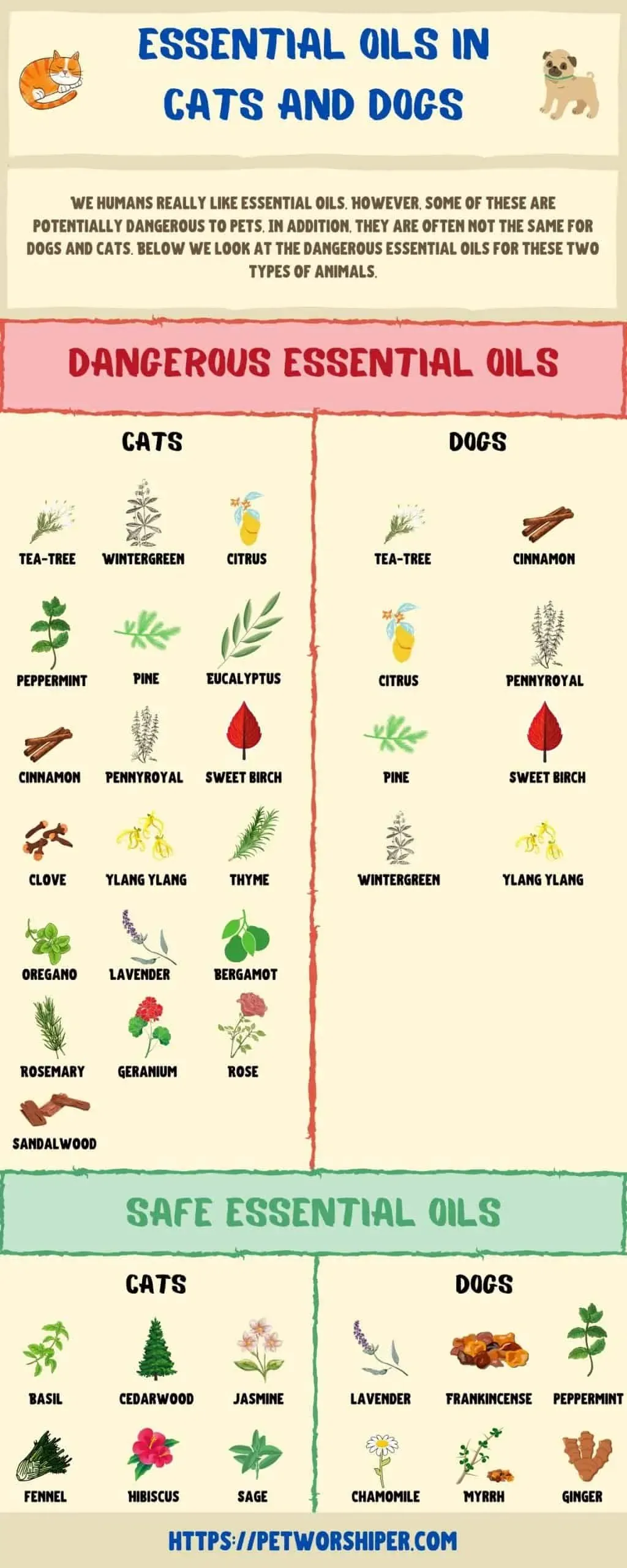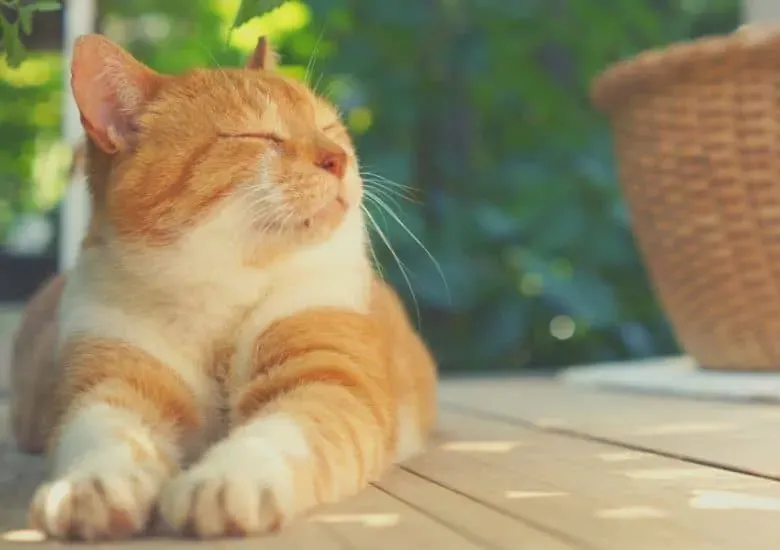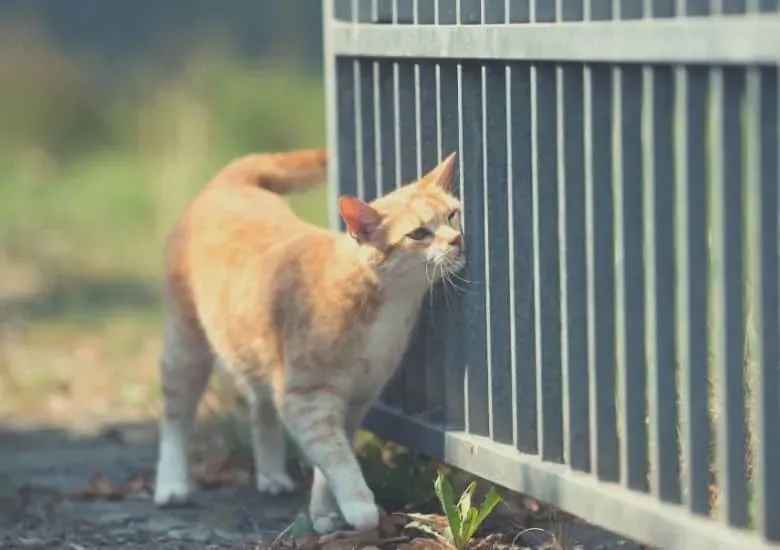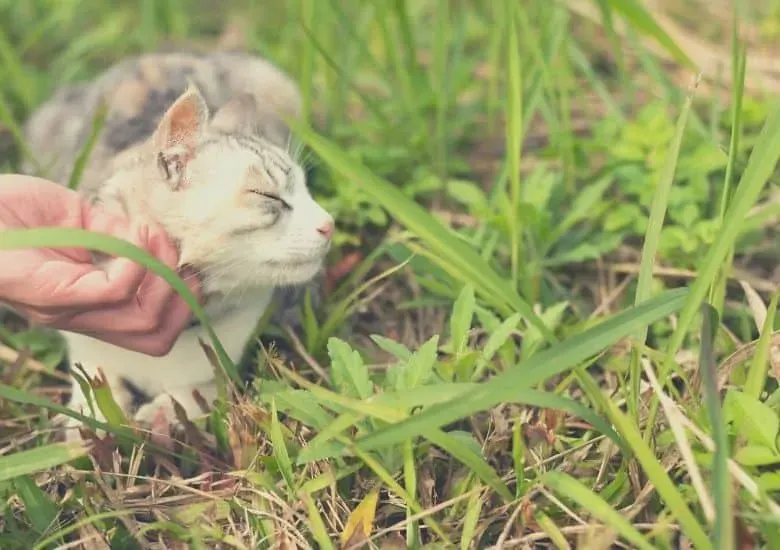Do you like essential oils? I don’t think you’re alone with that. It is used in a lot of households as it smells good and can also be effective as a cleaning agent. They are also used in care products.
However, these products pose a huge risk to cats. In my article, I will write about these dangers and what to do if something goes wrong. I will also share some useful tips with you at the end of this article.
Let’s see what dangers the essential oils pose.
- What are essential oils?
- Toxic essential oils
- Are there any safe essential oils for cats?
- How can cats come into contact with essential oils?
- What are the symptoms of essential oil poisoning in cats?
- What to do if we see any symptoms of poisoning?
- How to reduce the risk?
- Store away
- Don’t touch your cat
- Don’t clean with essential oils
- Use diluted essential oils
- Try to keep your cats away from diffusers
- Try to use prescription flea products
- Summary

What are essential oils?

There are plants whose extracts can be used for aromatherapy or other medicinal purposes. We call these extracts essential oils. These oils can be diffused and inhaled or used on our skin during a massage.
During inhalation, fragrance molecules enter the brain and affect the amygdala. This is why aromatherapy feels good. The situation is similar to massage. These oils can also have a pleasant, soothing effect on the skin (in a diluted format).
However, some animals, such as cats, can be extremely badly affected by essential oils. There was a time when some essential oils were judged safe for cats. However, there is ample evidence that this is not true.
Cats lack the enzymes in their bodies that break down certain components of essential oils. Examples of such components are phenols. People have no problem with that. But in cats, it can even cause severe liver disease or liver failure.
There are essential oils that have little or no phenols. These can be considered safe. However, I tend to suggest that if possible, we should try to avoid all sorts of essential oils if there are cats in our household.
Toxic essential oils
I will write about specific hazards and symptoms later. Now let’s look at a list of the most dangerous essential oils. They are toxic to your cat even in small amounts.
- Wintergreen oil
- Peppermint oil
- Citrus oil
- Tea tree oil
- Pine oil
- Eucalyptus oil
- Cinnamon oil
- Pennyroyal oil
- Sweet birch oil
- Clove oil
- Ylang-ylang oil
- Thyme oil
- Oregano oil
- Lavender oil
- Bergamot
- Geranium
- Rose
- Rosemary
- Sandalwood
There could be a few more on the list, but these are the most dangerous ones.
Are there any safe essential oils for cats?

Always check the phenol content of an oil. There are essential oils that can be said to be safe. Examples are cedarwood oil, lemongrass oil, and jasmine oil. They have no or very low phenolic content. Of course, you can’t apply these to your cat in the concentrated form either.
If you use diffusers, it will greatly reduce the concentration of these hazardous substances. So if you definitely want to use essential oils in your home, I suggest you buy such a device. And of course, place it in a large area, not in the smallest room.
I don’t think it’s worth taking the risk because the consequences can be harsh.
How can cats come into contact with essential oils?
Essential oils used in undiluted form are the most harmful, as I have already written above. At home, cats can come into contact with these substances in many ways.
Skin
One such way is skin contact. This is dangerous on the one hand because it causes various irritations on the skin. On the other hand, cats can swallow these substances later during self-grooming. This can cause even more damage.
Drink
Our favorite felines may drink the substances directly in liquid form. For example, from reed diffusers.
Inhale
Diffusers used at home reduce the concentration of essential oils. So much that they are not really dangerous. However, care should be taken that this can also be a risk for some cats with certain medical conditions. Especially when your cat has asthma.
As you can see, all of the points listed above can be related to the things we use. Cleansing sprays, diffusers, creams, etc.
In nature, animals do not encounter these substances in concentrated form. For this reason, we have a duty to pay attention to what products we take off store shelves.

What are the symptoms of essential oil poisoning in cats?
I have described above how these toxic substances can get into the body of cats. Below I have listed the possible signs and symptoms of poisoning:
- Drooling
- Vomiting (or sensitive stomach)
- Difficulty and wobble walking (ataxia)
- Tremors
- Respiratory distress (fast breathing, coughing, panting or wheezing)
- Lethargy or depression
- Collapse
- Seizures
Of course, the latter are very severe symptoms that occur in extreme cases. But it’s important to see how dangerous these substances are to kittens.
What to do if we see any symptoms of poisoning?
If you experience any of the above signs on your cat, try to get him or her to fresh air. Then call your veterinarian immediately.
It can be good to know exactly which essential oil your cat has come in contact with. This will make the job of your vet easier. He will probably check your cat’s heart rate, blood pressure, and signs of liver failure.
Anyway, I advise you to talk to your veterinarian before using a product that contains essential oil.
How to reduce the risk?
By following the tips below, you can greatly reduce the chances of your kitten being exposed to harmful essential oils. I have already mentioned a few of these, but now you can find them collected here.
Store away
This seems to be the clearest solution. However, you would be surprised how many do not pay attention to this.
Always store essential oils in places where your cats cannot reach them. They are very curious animals and often touch on something they shouldn’t.
Don’t touch your cat

Of course, you can touch your kitten… But if you’ve just used a product containing essential oil, neglect it for a while. Or wash your hands carefully. Remember that cats can lick these harmful things off themselves.
Don’t clean with essential oils
Many people like to use products containing such substances for cleaning. No wonder, as they are very effective and they smell good.
But forget to use them if there are cats in your household. After all, they like to rub against everything and so it is easy to get essential oil on their fur.
Use diluted essential oils
If you definitely want to use essential oils, make sure you do it in a diluted version. This can greatly reduce the chances of poisoning.
Try to keep your cats away from diffusers
Diffusers dilute essential oils, so they are not a major hazard when inhaled. However, even this small risk is worth avoiding. Put your diffusers in places where your cats cannot enter. Ventilate these areas frequently, further reducing hazards.
Otherwise, diffusers are not just dangerous by inhalation. Cats can easily find their way inside those devices. After that, they can drink from hazardous substances.
Try to use prescription flea products
There are flea products that add essential oils as extra help. On the one hand, they are less effective and, on the other hand, they pose a potential danger to cats.
For this reason, both I and the veterinarians recommend that you obtain prescription products. Their composition does not pose a danger.
Try to follow the tips above in all circumstances.
Summary
As you have seen, essential oils can do more harm than good. Try to use scented products in your household that do not contain these substances. This will protect your beloved furry friend.

